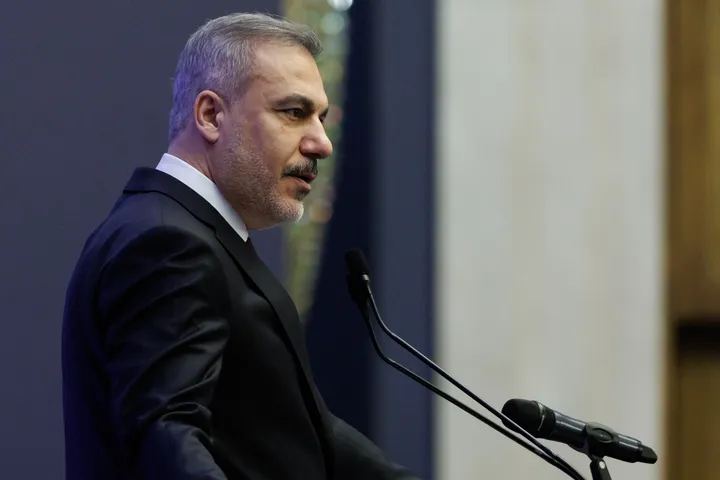A century after it took place, the population exchange between Greece and what was then the Ottoman Empire, continues to cast a shadow on the relations between the two neighbouring countries and affect the lives of the descendants of people who were uprooted, as well as those they left behind.
What made the event that was mutually agreed upon by the governments of both countries stand apart, was that it ran counter to most nationalist movements that emerged across Europe from the long 19th century. Instead of being driven by concerns of language or ethnicity, this was a movement driven by religious identity.
The relationship between the neighbouring countries Greece and Türkiye has always been complex and fraught. A long history of the Ottoman Empire's rule was followed by a Greek rebellion in the 1830s that pushed back the Ottoman Empire continuously, till the invasion of Anatolia by the Greek army with the help of the West in 1919, at the end of World War I.
It did not end there, however, as the Turkish War of Independence led to the Great Offensive by the Turkish army in 1922. The aftermath of this military campaign saw approximately one million Greeks emigrating to Greece, while the remaining Greek population faced a recalibration of their status through a bilateral agreement signed between Türkiye and Greece at the Lausanne Conference.
The roots of the Turkish-Greek population exchange, commonly associated with the Lausanne Conference, trace back to the aftermath of the Ottoman-Russian War of 1877-78. The repercussions of this war triggered substantial population movements in the Balkans, laying the groundwork for the idea of a population exchange.
Exchange of Greek and Turkish peoples
Professor Yucel Bozdaglioglu of Aydin Adnan Menderes University says, "Many Muslims fled from the massacres in the Balkan Wars," indicating the emergence of the idea of population exchange in the aftermath of these conflicts.
The Turkish-Greek "population exchange" emerged as a key issue during the Lausanne Conference and found resolution through the signing of the "Convention and Protocol Concerning the Exchange of Greek and Turkish Peoples" on January 30, 1923. According to the terms outlined in the agreement, Orthodox Greeks in Türkiye and Muslim Turks in Greece were subjected to forced migration, starting May 1, 1923. Those who migrated were prohibited from returning to their countries of origin without the permission of the respective authorities.
While the agreement aimed at a comprehensive exchange, exceptions were made. Bozdaglioglu explains, "The Turkish side sought exemption for the Turks of Western Thrace, while the Greek side pressed for the exemption of Greeks in Istanbul and even those in Izmir."
The historical significance of Istanbul for Greece, and the presence of the Fener Greek Orthodox Patriarchy there, led to the exclusion of non-Orthodox Greeks living in Istanbul from the population exchange. Consequently, Orthodox Greeks became part of the forced migration, while non-Orthodox Greeks in Istanbul were exempted.
"The reason for this is that France and England wanted to keep the Protestant and Catholic Greeks in Istanbul. In fact, it shows that even among themselves, Westerners discriminate, defending the Protestant and Catholic Greeks, while leaving the Orthodox Christians to their own fate," says Bozdaglioglu.
The exchange, which impacted around 350,000 Muslim Turks and 200,000 Christian Greeks, faced implementation challenges. Despite the swift signing of the contract at the behest of Turkish and Greek authorities, supported by other participating countries, immigrants encountered numerous difficulties in both Türkiye and Greece, leading to tragic events. Consequently, the issue remained unresolved until the 1930s.
From the perspective of the immigrants, leaving their birthplaces and resettling in a new country resulted in profound psychological trauma. Greeks who immigrated to Greece faced more severe integration problems, prompting many to migrate further west to Europe and America.
Bozdaglioglu reflects on the magnitude of the Turkish-Greek population exchange, stating, "For the first time in history, two states subjected some of their people to forced migration to solve a problem of their minorities." He emphasises that the method of “getting rid of minorities through exchange” had left an indelible mark in the literature of international law, as an unfortunate precedent. Many Greeks reluctantly left Türkiye, maintaining a lingering connection to the land they once considered their homeland.
This historical episode represents a significant chapter where geopolitical complexities, demographic shifts and diplomatic manoeuvres converged, shaping the destinies of countless individuals caught in the currents of change. The complex web of historical events, marked by conflict and displacement, underscores the intricate relationship between these two communities and the broader implications for the evolving landscape of the Eastern Mediterranean.
























